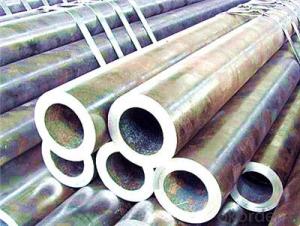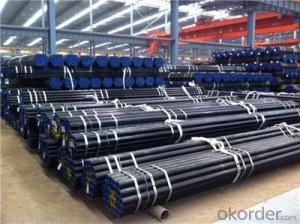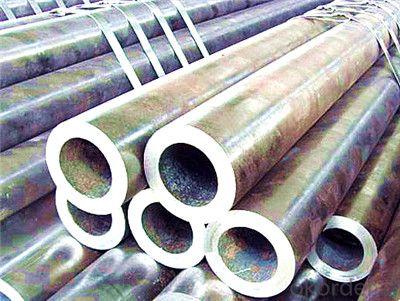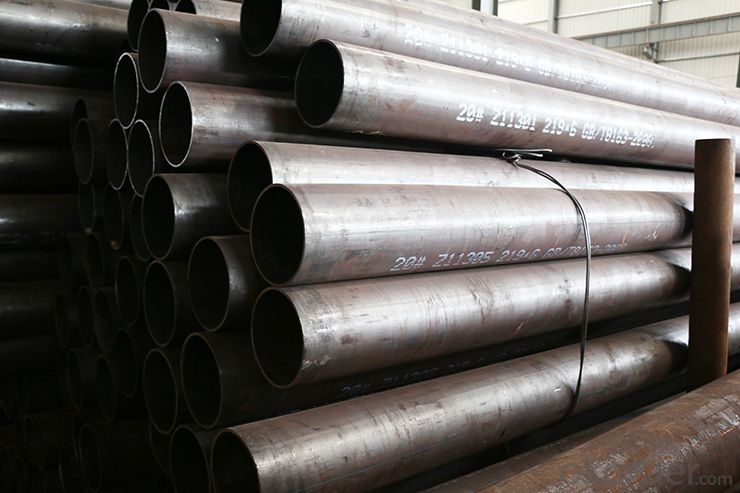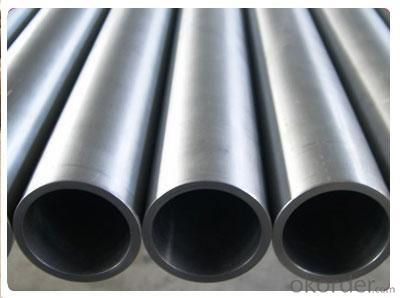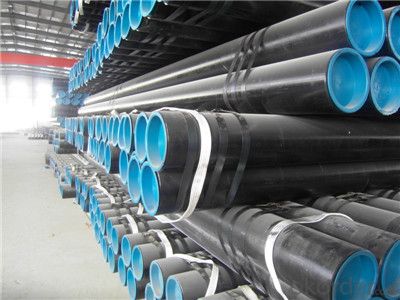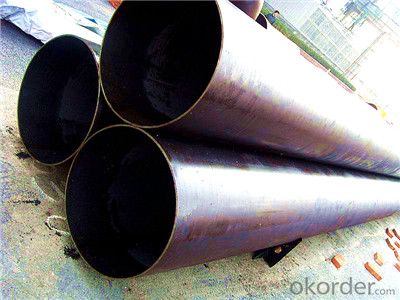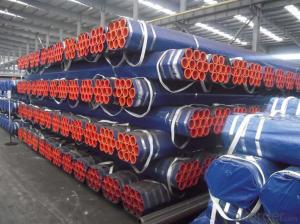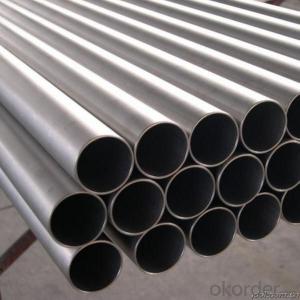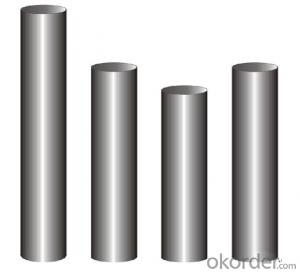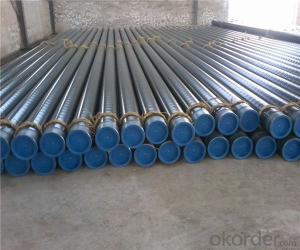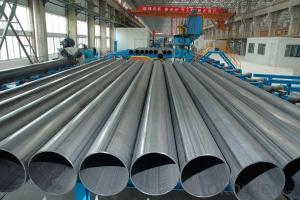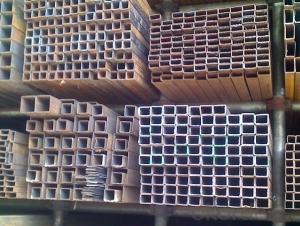Steel Pipe with High Quality and Best Price Made in China
- Loading Port:
- Tianjin
- Payment Terms:
- TT or LC
- Min Order Qty:
- 50 m.t.
- Supply Capability:
- 200000 m.t./month
OKorder Service Pledge
OKorder Financial Service
You Might Also Like
PRODUCT DETAILS
1.Structure of Steel Pipe with High Quality and Best Price Made in China Description:
A large amount of Seamless Steel Pipes is offered to the clients at cost effective rates. These pipes are extremely durable, resistant to corrosion and have high tensile strength. Our pipes are used in nuclear plants, power plants, refineries and construction industry across the country. Furthermore, we are capable of providing these seamless pipes to the clients in bulk quantity.
2.Main Features of Steel Pipe with High Quality and Best Price Made in China:
• High manufacturing accuracy
• High strength
• Small inertia resistance
• Strong heat dissipation ability
• Good visual effect
•Reasonable price
3.Packaging & Delivery:
| Packaging Details: | Seaworthy packages, bundles wrapped with strong steel strip |
| Delivery Detail: | 15-30 days after received 30% TT |
4.Steel Pipe with High Quality and Best Price Made in China Specification:
| Standard: | GB, DIN, ASTM,ASME, ASTM A106-2006, ASTM A53-2007 |
| Grade: | 10#,20#, 45#, 16Mn |
Thickness: | 8 - 33 mm |
| Section Shape: | Round |
| Outer Diameter: | 133 - 219 mm |
| Place of Origin: | Shandong, China (Mainland) |
| Secondary Or Not: | Non-secondary |
| Application: | Hydraulic Pipe |
| Technique: | Cold Drawn |
| Certification: | API |
| Surface Treatment: | factory state or painted black |
| Special Pipe: | API Pipe |
| Alloy Or Not: | Non-alloy |
| Length: | 5-12M |
| Outer Diameter: | 21.3-610mm |
5.Product pictures
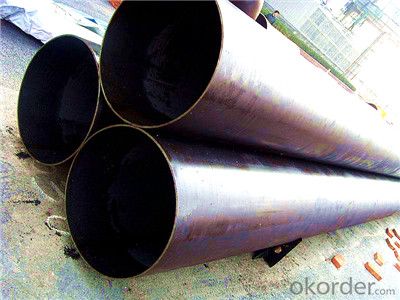
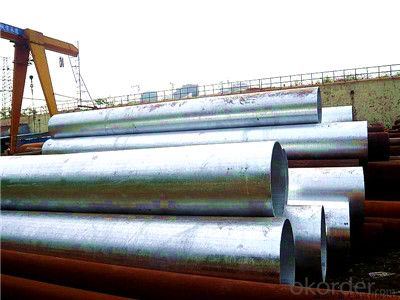
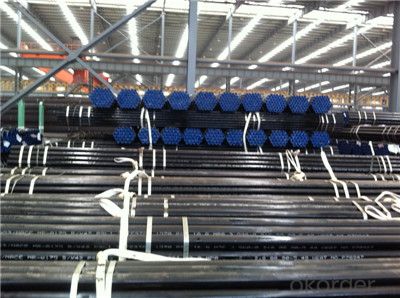
5.FAQ of Steel Pipe with High Quality and Best Price Made in China:
①How is the quality of your products?
Our products are manufactured strictly according to national and internaional standard, and we take a test
on every pipe before delivered out. If you want see our quality certifications and all kinds of testing report, please just ask us for it.
Guaranteed: If products’ quality don’t accord to discription as we give or the promise before you place order, we promise 100% refund.
②How about price?
Yes, we are factory and be able to give you lowest price below market one, and we have a policy that “ for saving time and absolutely honest business attitude, we quote as lowest as possible for any customer, and discount can be given according to quantity”,if you like bargain and factory price is not low enough as you think, just don’t waste your time.Please trust the quotation we would give you, it is professional one.
③Why should you chose us?
Chose happens because of quality, then price, We can give you both.Additionally, we can also offer professional products inquiry, products knowledge train(for agents), smooth goods delivery, exellent customer solution proposals.Our service formula: good quality+good price+good service=customer’s trust.
SGS test is available, customer inspection before shipping is welcome, third party inspection is no problem.
Any question, pls feel free to contact us !
- Q: How are steel pipes protected against external corrosion in coastal areas?
- To safeguard steel pipes against external corrosion in coastal regions, a combination of coating and cathodic protection methods is employed. An effective approach involves applying a protective coating onto the steel surface, forming a barrier against corrosive elements like saltwater and humidity present in the coastal environment. Commonly used coating materials, such as epoxy or polyethylene, possess corrosion-resistant properties and offer long-lasting protection. Furthermore, cathodic protection is utilized to enhance the corrosion resistance of the steel pipes. This technique employs sacrificial anodes or impressed current to prevent corrosion. Sacrificial anodes, typically made of zinc or aluminum, are attached to the steel pipe and corrode in place of the steel, sacrificing themselves to safeguard the steel surface. On the other hand, impressed current systems rely on an external power source to provide a protective current, effectively preventing corrosion. Ensuring the effectiveness of the protective coating and cathodic protection system necessitates regular inspection and maintenance. Coatings may degrade over time due to wear and tear, requiring periodic evaluation and reapplication if necessary. Similarly, sacrificial anodes must be replaced when depleted, and impressed current systems need to be monitored and adjusted to maintain the desired level of protection. By combining the application of durable coatings with cathodic protection measures, steel pipes in coastal areas can be adequately shielded against external corrosion, promoting their durability and optimal performance.
- Q: How are steel pipes used in the construction of pipelines?
- Steel pipes are commonly used in the construction of pipelines due to their strength, durability, and resistance to corrosion. They are typically laid down and welded together to form a continuous pipeline that can transport various fluids, such as oil, gas, or water, over long distances. The steel pipes provide a reliable and efficient means of distribution, ensuring the safe and efficient transfer of resources in the construction industry.
- Q: How are steel pipes tested for quality assurance?
- Steel pipes are tested for quality assurance through various methods, such as visual inspection, dimensional checks, chemical composition analysis, mechanical property testing, and non-destructive testing techniques like ultrasonic or magnetic particle inspection. These tests ensure that the pipes meet the required specifications, performance standards, and are free from defects or flaws, ensuring their durability and reliability in various applications.
- Q: What is the impact of temperature on steel pipes?
- The impact of temperature on steel pipes is significant and can have both positive and negative effects. At high temperatures, steel pipes can experience thermal expansion, causing them to expand and potentially leading to distortion or buckling. This expansion can also affect the joints and connections, potentially causing leaks or failures. Therefore, it is crucial to consider the coefficient of thermal expansion when designing and installing steel pipes in high-temperature environments. On the other hand, steel pipes typically have excellent thermal conductivity, allowing them to withstand high temperatures without significant degradation. This makes them suitable for applications where heat transfer is a primary concern, such as in industrial processes or heating systems. Extreme cold temperatures can have detrimental effects on steel pipes as well. In freezing conditions, water or other fluids inside the pipes can expand and lead to cracks or bursts. This can cause leaks, loss of fluid, and potential damage to surrounding structures. Therefore, appropriate insulation and preventive measures need to be taken to ensure the integrity of steel pipes in cold environments. Additionally, temperature variations can also affect the mechanical properties of steel, such as its tensile strength and toughness. For instance, exposure to elevated temperatures over an extended period can lead to a phenomenon known as thermal degradation, where the steel's strength decreases, making it more prone to deformation or failure. In conclusion, the impact of temperature on steel pipes is significant and can influence their structural integrity, thermal performance, and mechanical properties. Proper design, insulation, and maintenance are essential to ensure the safe and efficient operation of steel pipes in various temperature conditions.
- Q: How are steel pipes used in the construction of oil storage tanks?
- Steel pipes are commonly used in the construction of oil storage tanks as they provide strength, durability, and corrosion resistance. These pipes are used to connect various components of the tank, such as the walls, roof, and bottom, ensuring a secure and leak-proof structure. Additionally, steel pipes are also used to transport oil within the tank and for the installation of necessary fittings, valves, and other equipment.
- Q: What are the different types of steel pipe connections for steam pipelines?
- There are several types of steel pipe connections commonly used for steam pipelines, including threaded connections, flanged connections, welded connections, and grooved connections. Each type has its own advantages and is selected based on factors such as the pipe size, pressure rating, and ease of installation and maintenance.
- Q: How are steel pipes used in the construction of water supply systems?
- Steel pipes are commonly used in the construction of water supply systems due to their durability, strength, and resistance to corrosion. These pipes are used to transport water from the source to various points of distribution, such as buildings, homes, and industries. Steel pipes are often buried underground or installed above ground, depending on the specific requirements of the project. Additionally, steel pipes can withstand high pressure and are suitable for carrying large volumes of water, making them a reliable choice for water supply systems.
- Q: What are the main components of a steel pipe?
- The main components of a steel pipe include the steel material itself, which is typically made from carbon and alloy steel, as well as various coatings or linings that can be applied to enhance its durability and resistance to corrosion. Additionally, a steel pipe may also have fittings such as flanges or couplings, and may be further reinforced with supports or braces depending on its intended use.
- Q: Can steel pipes be used in the automotive industry?
- Yes, steel pipes can be used in the automotive industry. They are commonly used for various applications such as exhaust systems, fuel lines, and structural components due to their strength, durability, and resistance to heat and corrosion.
- Q: Are steel pipes suitable for underground nuclear waste storage?
- Steel pipes are not suitable for underground nuclear waste storage. While steel is a strong and durable material, it is not resistant to corrosion when exposed to certain types of nuclear waste. Over time, the radioactive materials can corrode the steel pipes, leading to potential leaks and contaminating the surrounding environment. Additionally, steel pipes are not designed to withstand the extreme temperatures and pressures that can occur in nuclear waste storage facilities. Therefore, alternative materials such as corrosion-resistant alloys or concrete are typically used for underground nuclear waste storage to ensure the containment and isolation of the hazardous materials.
Send your message to us
Steel Pipe with High Quality and Best Price Made in China
- Loading Port:
- Tianjin
- Payment Terms:
- TT or LC
- Min Order Qty:
- 50 m.t.
- Supply Capability:
- 200000 m.t./month
OKorder Service Pledge
OKorder Financial Service
Similar products
Hot products
Hot Searches
Related keywords
